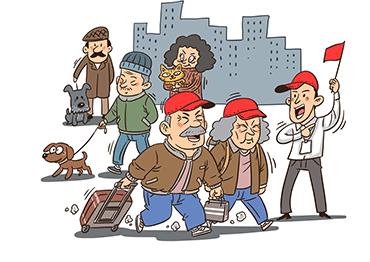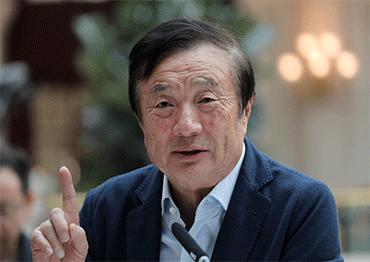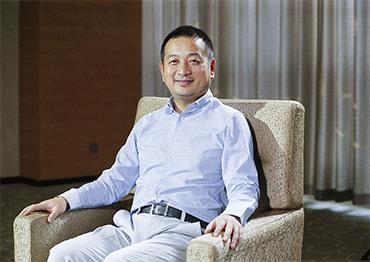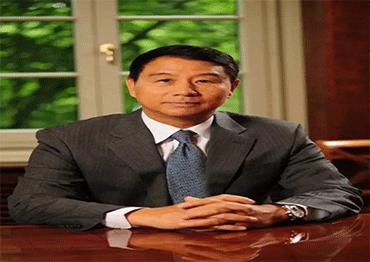“Research shows that middle-aged and elderly people are the largest demographic in China’s tourism market, the fastest-growing segment in the pet market, a key driver of livestreaming sales, and the biggest users of online entertainment and educational services. They are also the primary consumers of medical and caregiving services.���
Peng Xizhe, deputy director of the Fudan Institute on Aging, emphasizing the importance of the “silver economy” in an article for Party newspaper Study Times on October 16
“The State’s priority is employment, while businesses focus on growth. This creates a conflict. However, this is a social issue, not our concern. As a company, we should be focused on how technology can drive societal progress. It’s the government’s role to address social balance.”
Ren Zhengfei, founder and CEO of Huawei, talking about AI’s development with the International Collegiate Programming Contest (ICPC) chairman, coaches and winners as reported by ICPC Beijing on October 31
“The central government should take the lead in promoting childbirth, and birth subsidies should be implemented by the State over time. This is because the costs and benefits of incentivizing childbirth can only come full circle when spread across society and generations. Only the central government has the policy tools necessary, such as ultra-long-term government bonds or credit expansion, while local governments can only play a supporting role.”
Liang Jianzhang, co-founder of travel app Ctrip and expert on birth policies, writing for financial portal Caixin in early November
“Before 2020, young consumers drove nearly 60 percent of the growth in consumption. However, after 2020, their spending growth slowed more sharply than that of other demographics, making it difficult for overall consumption to maintain previous growth levels.”
Lu Zhe, deputy director of the Founder Securities Institute, calling for greater focus on youth consumption in the institute’s survey report released in early November
“Without the WTO, the world would have regressed to an era of survival of the fittest, where all countries, including developed ones, would be caught in a fragmented global economic order in a zero- sum game with no winners. Although the WTO and economic globalization are not perfect and need reform, we should not throw the baby out with the bathwater.”
Yi Xiaozhun, former deputy commerce minister of China and former deputy director-general of the WTO, at the 7th Hongqiao International Economic Forum in Shanghai on November 5
“What is the current focus of our reform efforts? I think it should be the issues raised at the third plenary session of the 20th Central Committee of the Communist Party of China, including the fiscal relationship between the central and local governments. Now may be the time to advance these reforms. Similarly, when it comes to attracting foreign capital, it’s time to address the relationship between China and the rest of the world.”
Zhang Yansheng, Chief Researcher, China Center for International Economic Exchanges, at an economic forum hosted by news outlet guancha.cn in Shanghai on October 19
“In the past, even if one person prefers to eat sweet tofu and the other likes it salty, they could still find common ground against someone who prefers pancakes. But now, everyone is at odds with one another. In the public opinion space, even partial consensus is becoming increasingly rare.”
Chen Yu, screenwriter, director and professor at Peking University, discussing the heightened risks of film investment amid fragmented public opinion in an interview with NewsChina’s Chinese edition
“Data shows that many large industrial enterprises and manufacturers [with annual revenues of over 20 million yuan (US$2.9m)] have recovered well, but small family businesses remain underserved by existing policies. During the pandemic, we launched several supportive measures to help family businesses. I believe these policies should be extended for the long term, with enhanced support in finance, business and taxation. Policymakers need to pay greater attention to this segment.”
Zhang Jun, director of the School of Economics at Fudan University, analyzing China’s Q3 economy in an interview with National Business Daily and Tencent Finance on October 18
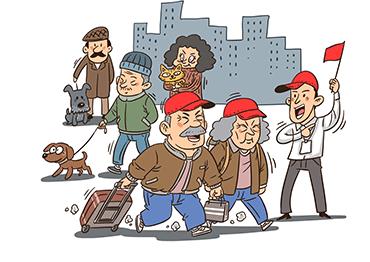
 Old Version
Old Version
